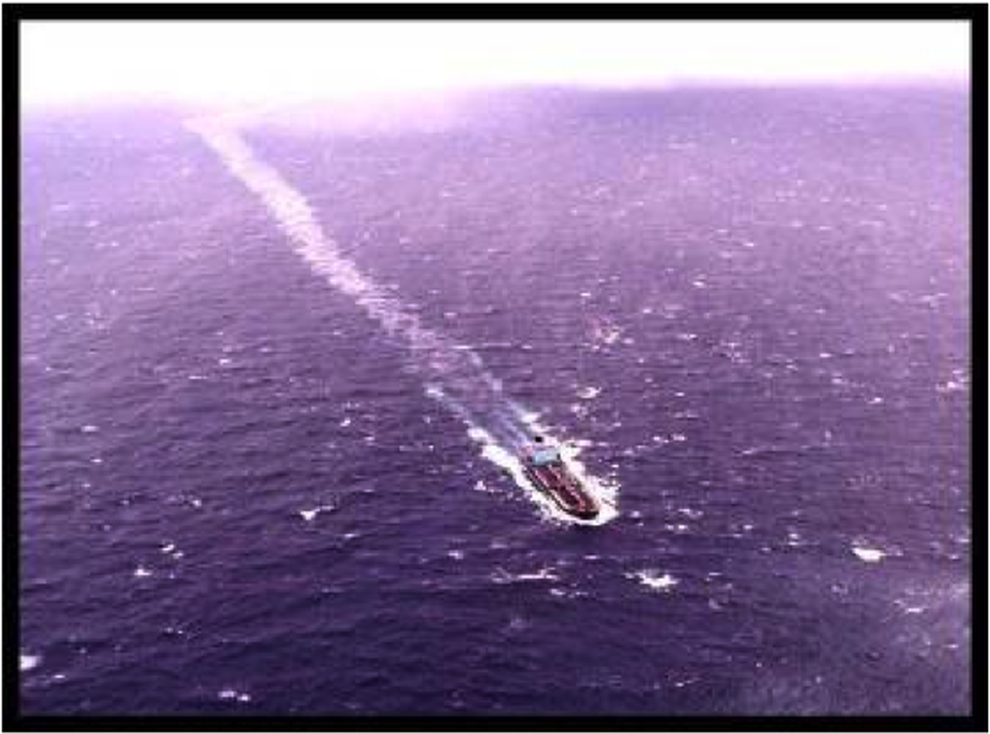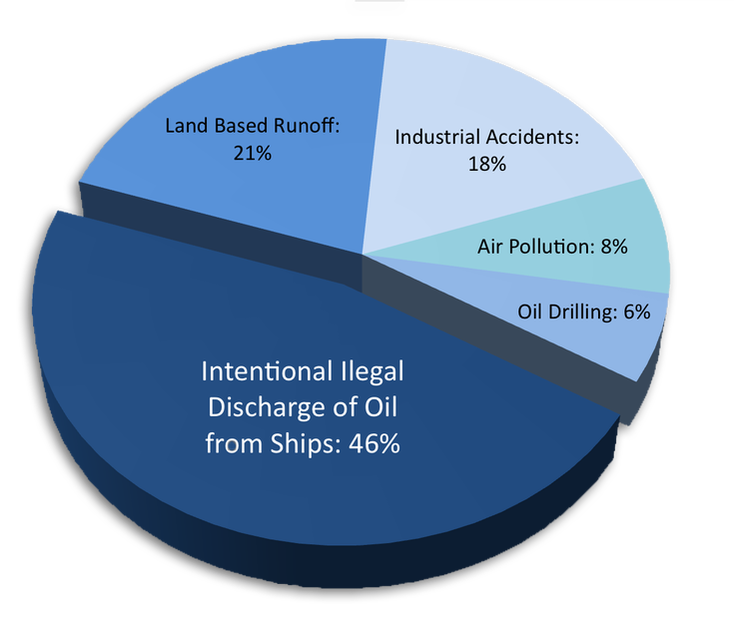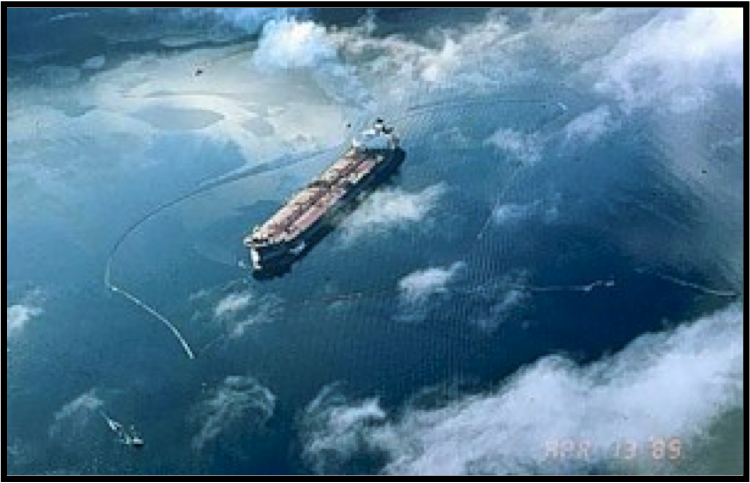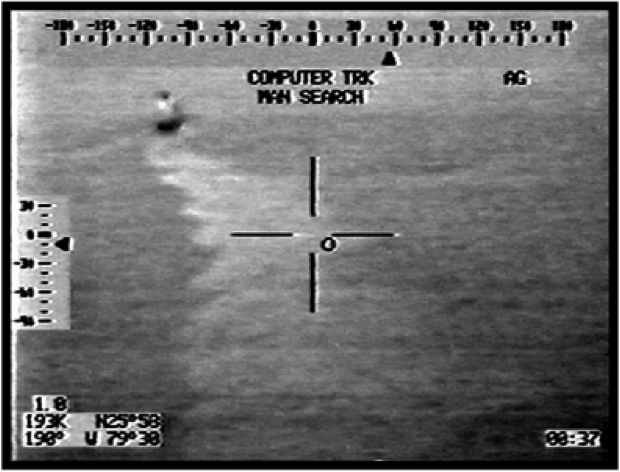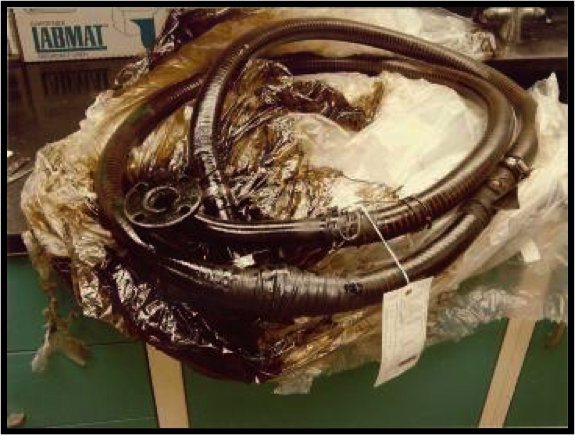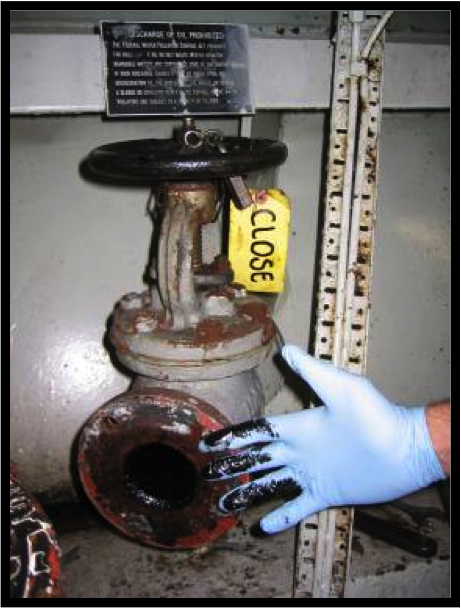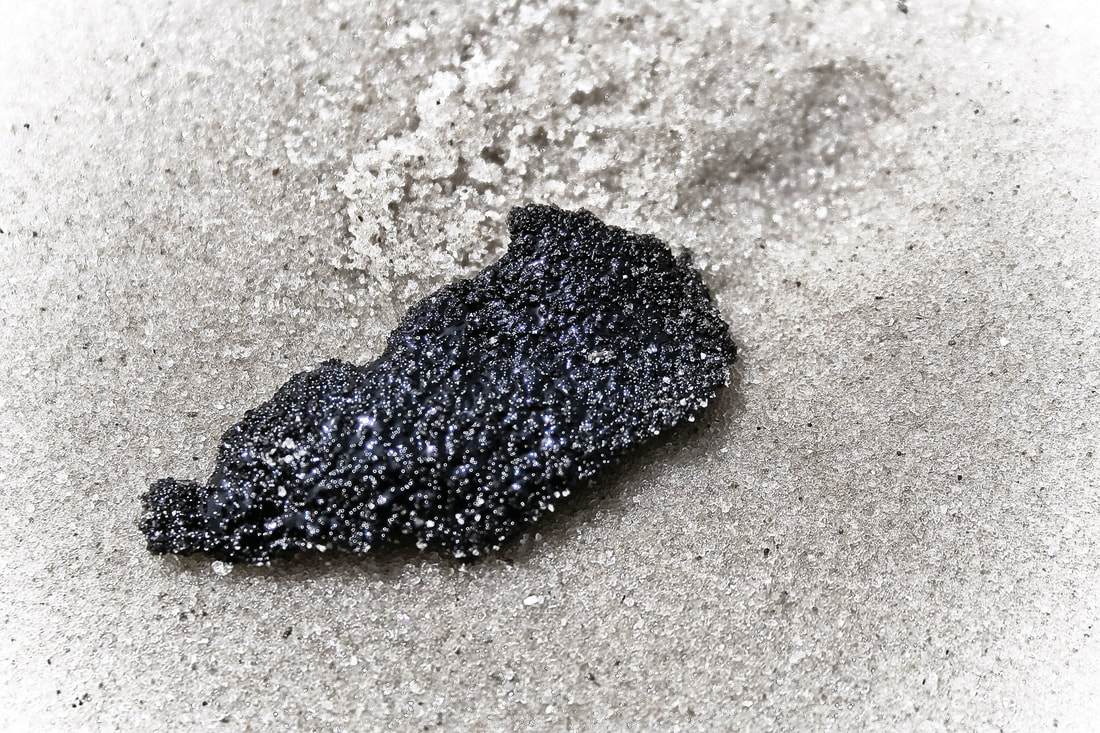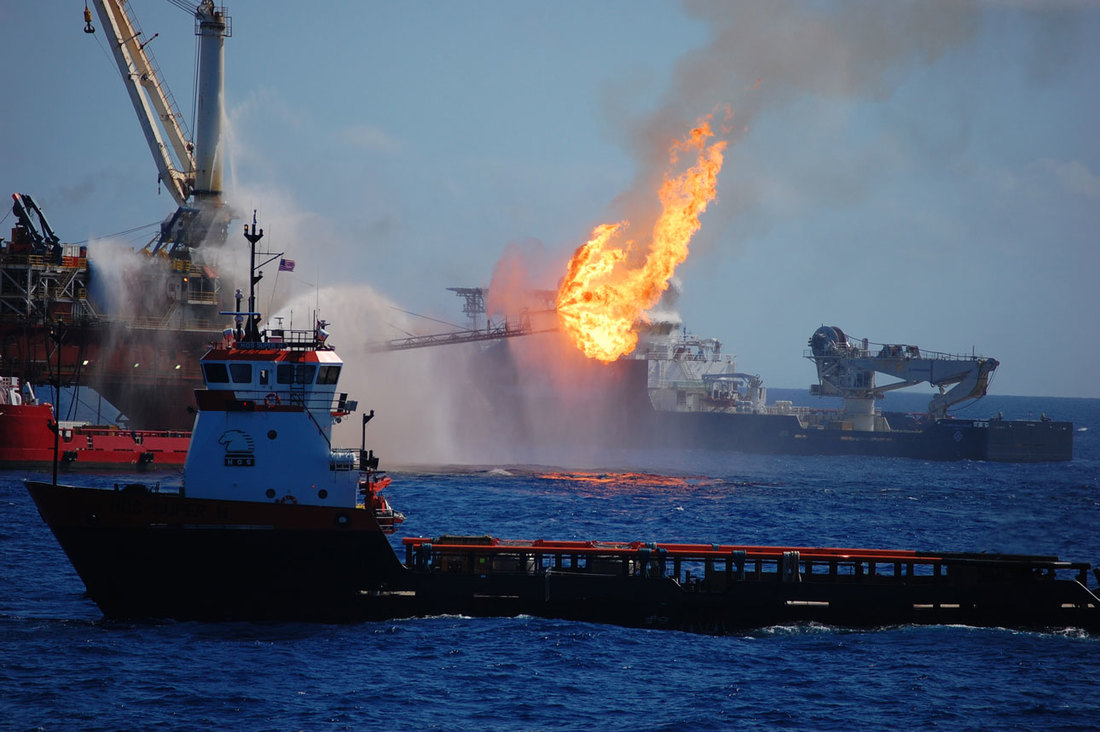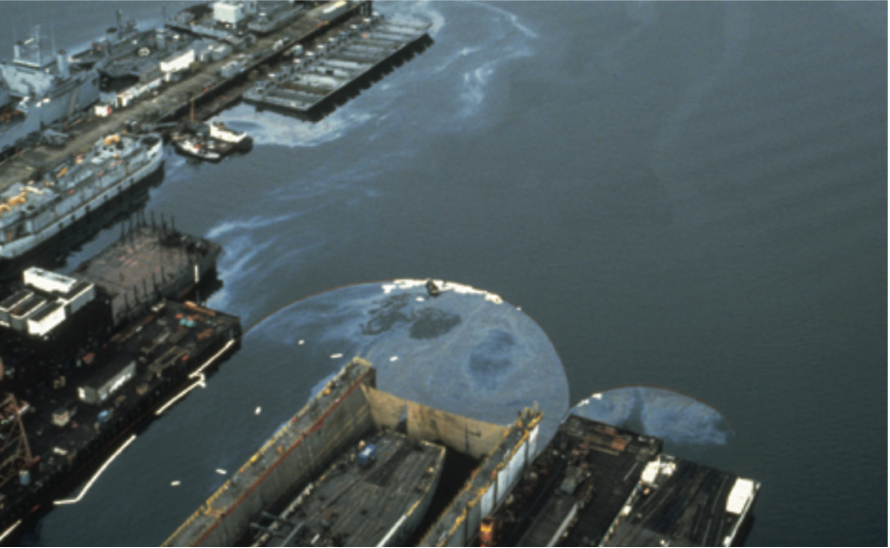SOURCES OF oil in our waters
The single largest human cause of oil pollution in the oceans is oily waste illegally spilled from ships, according to the National Academy of Science.
Each year, it is estimated that up to 810,000 tons of fuel oil sludge and oily bilge waste are illegally dumped into the world's oceans by commercial shipping.
Each year, it is estimated that up to 810,000 tons of fuel oil sludge and oily bilge waste are illegally dumped into the world's oceans by commercial shipping.
|
Intention dumping from ships accounts for 46% of the oil entering the world’s oceans from human sources each year. This is the equivalent of 8 new Exxon Valdez oil spills each and every year. This is the largest single source of oil in our waters. Additional, but smaller sources, include runoff from land, industrial accidents, air pollution and accidental discharges from oil drilling. |
|
While industrial accidents like the Exxon Valdez, which spilled 11 million gallons of oil (or 37,000 tons) in 1989, or British Petroleum’s Deepwater Horizon, which released 210 million gallons of oil in 2010, attract the most media attention, industrial accidents like these represent just 18% of all the oil released into the water as a result of human activity. |
Extent of illegal dumping
|
The world’s shipping fleet is comprised of nearly 88,000 vessels. About 50,000 of these ships trade internationally.
It is believed that 85-90% of the world fleet complies with the law. Unfortunately, that means between 5,000-7,500 vessels, routinely and intentionally discharge between 70 million to 210 million gallons of waste oil into the water each year. From aerial surveillance by governments around the world, we can see that illegal dumping by commercial ships is commonplace. It is also highly illegal. Learn about the laws against marine oil pollution. |
WHY DO MARINERS POLLUTE?Oil pollution is illegal, not to mention extremely harmful to the environment. So why do some ship owners and crew members still decide to pollute? It comes down to money.
Modern cargo and container ships are powered by oil-based fuels and lubricants, and leaks are commonplace. The heavy fuel oil that propels these ships produces an oily sludge when burned, and nearly all of the foul water, liquid waste and oil leaked from machinery drains down and accumulates in the bilge tanks. Oil tankers, in addition to accumulating regular operational waste, must also wash out their tanks between each trip, adding thousands of gallons of sludgy waste oil which must also be emptied regularly. A 2002 report by the European Organization for Economic Cooperation and Development estimated that the average annual cost of meeting the MARPOL regulations runs from $30,000 a year for an average sized cargo ship to $55,000 for a large container vessel, and the cost can rise to $150,000 per year for a very large oil taker. These costs represent, on average, between 3.5% and 6.5% of a ship's overall operating expenses. |
Some ship operators and owners try to save money or the time it takes to unload waste oil in port by breaking the law by installing a pipe or hose, known in the shipping industry as a “magic pipe,” to bypass the ship's oily water separator and pump oily water directly into the ocean. This behavior was outlawed by the international marine pollution treaty known as MARPOL, which banned the dumping of oil into the water. Learn more about MARPOL and other Laws |
Environmental Impact of OIL types
Heavy oil can form tar balls when mixed with air and agitated by the movement of waves in a process known as weathering. Tar balls can travel great distances and eventually wash up on shore.
